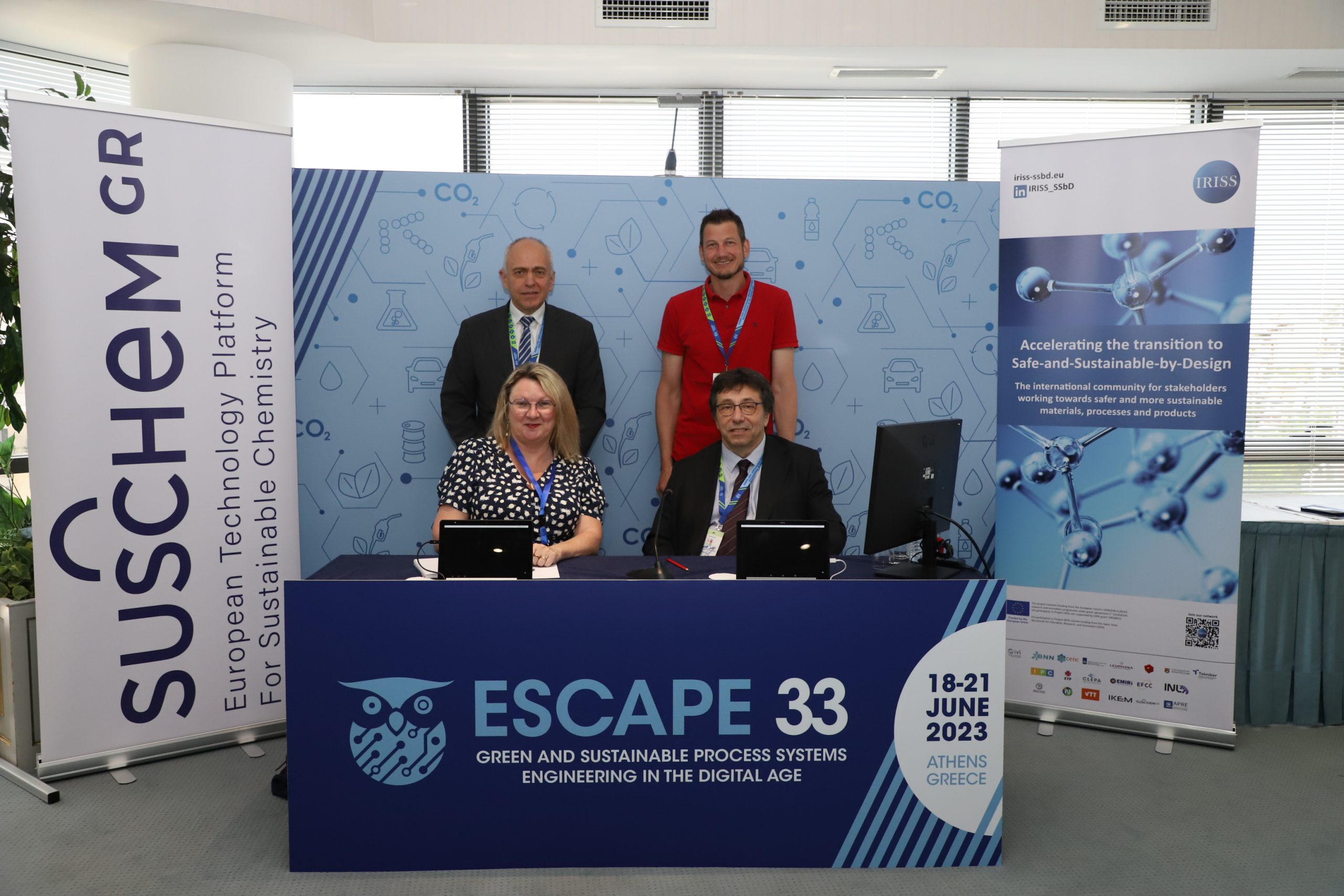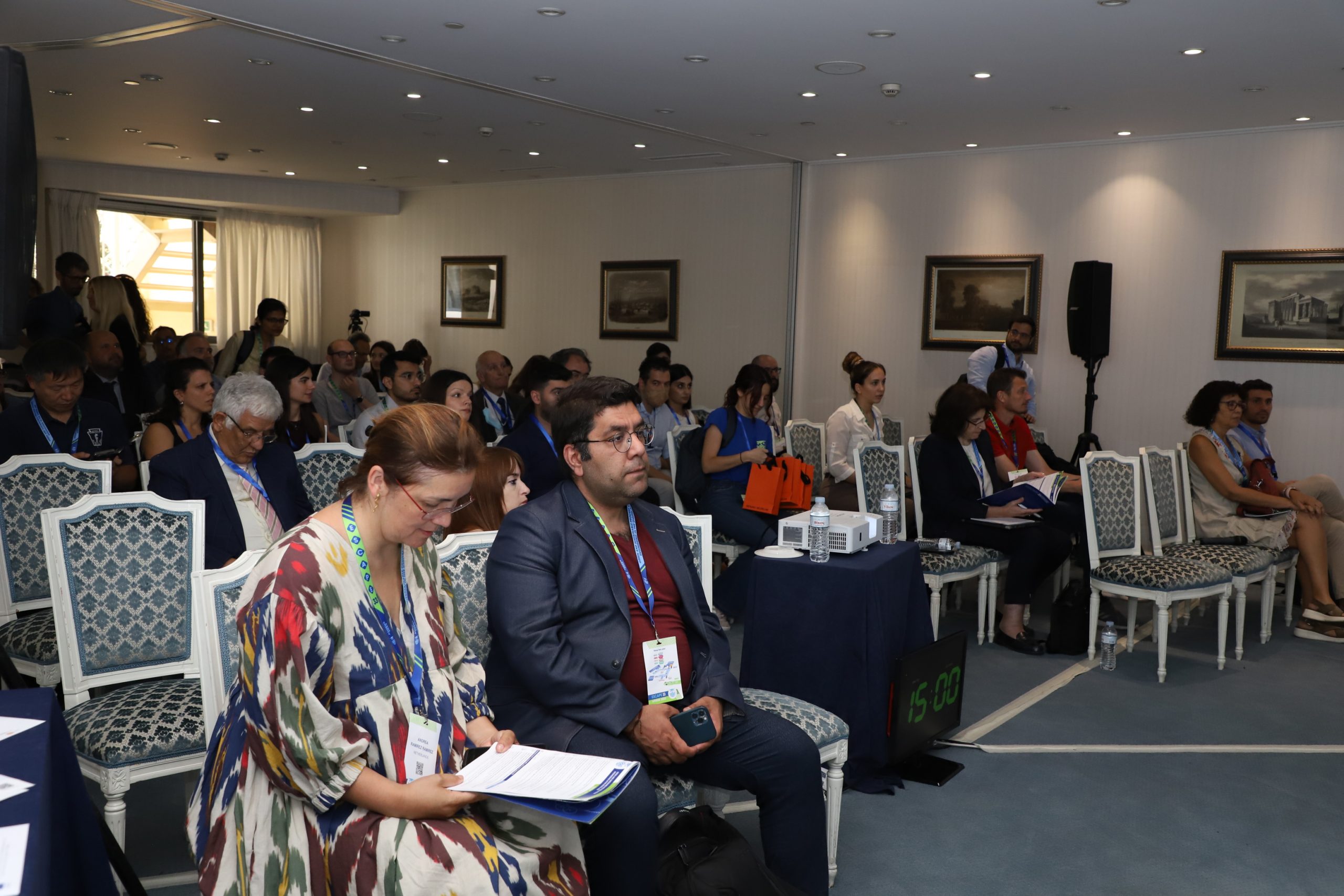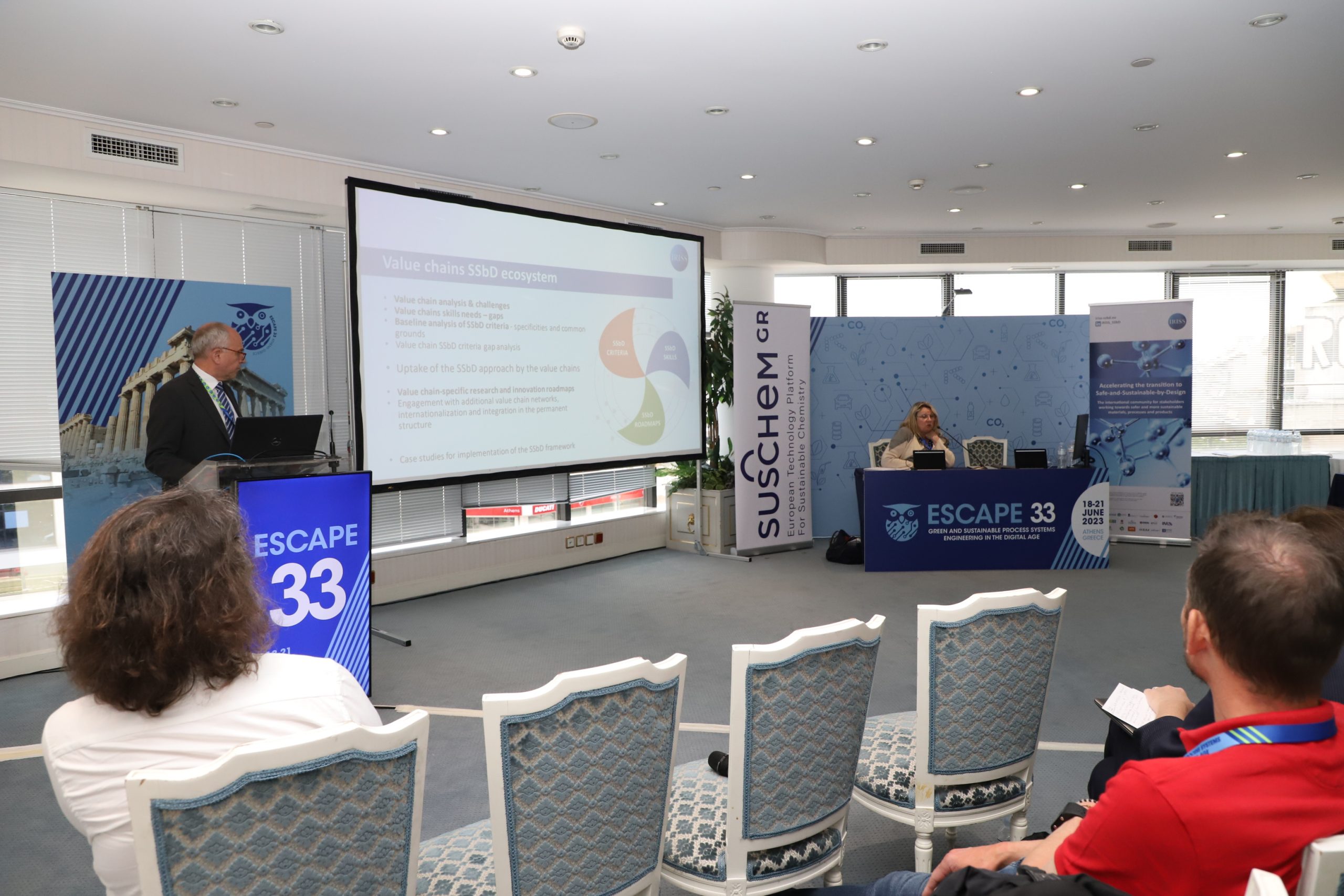The IRISS Thematic Session on “Safe and Sustainable by Design”, held during the 33rd European Symposium on Computer–Aided Process Engineering (ESCAPE-33) Athens on Tuesday, June 20th, concluded with over 50 registered attendees and over 40 physically and digitally present.

The open session kicked off with Dr Eva Schillinger, representing SusChem ETP, who took the floor remotely to present the wider picture of “Safe and Sustainable by Design”. More specifically, she started her presentation by referring to the major up-to-date milestones of the Safe and Sustainable by Design (SSbD) approach in the EU, which are summarized below:
- The announcement within the Chemical Strategy for Sustainability (CSS) on development of SSbD criteria for chemicals and materials (October 2020)
- Two stakeholder workshops on SSbD, organized by European Commission (March 2021 and 2022)
- Publication of the preparatory work on the definition of SSbD criteria and evaluation procedures, by JRC (July 2022)
- Publication of the Strategic Research and Innovation Plan (SRIP) for safe and sustainable Chemicals and Materials by the Directorate-General for Research and Innovation of European Commission (October 2022)
- Adoption of the Recommendation on European assessment framework for SSbD chemicals and materials by European Commission.
- Publication of draft report on case study: plasticisers in food contact, by JRC (February 2023).
- Workshop on case studies: plasticisers in food contact (JRC), halogen-free flame retardants in ITC (Clariant/BASF), enzymes in textile scouring (Novozymes), organized by EC (February 2023)
Dr Schillinger went into details about CSS, SRIP and the SSbD Framework, making references to the specific SSbD related topics of the respective reports. Furthermore, she provided the key points of SusChem feedback to the EC SSbD survey (March 2023), declaring also the commitment of SusChem to continue facilitation of the co-creation process with the EC, bringing together all relevant stakeholders.
Finally, she introduced the new SSbD website, set up by European Commission, where all relevant information is given in a clear manner, and focused on the path forward for the implementation of the SSbD framework in EU, mentioning the following major upcoming key activities related to SSbD:
- Feedback phase on the JRC case studies (up to June 30th, 2023)
- Second workshop on case studies (Q4, 2023)
- The revision and adjustment of the SSbD framework by EC (January 2025)
Right after Dr Schillinger, the floor was taken by Dr Anne Chloé Devic, presenting the IRISS project and its basic aims to connect, synergize and transform the SSbD community in Europe and globally towards a life cycle thinking. She emphasized the specific approaches which will be followed by the project towards attaining these aims.
Dr Devic continued by providing the operational structure of the IRISS project and the way it is going to lead towards an efficient science-policy-industry interface and proceeded with the 7 priority value chains of interest for the project and their specific SSbD challenges, whilst at the same time assessing the events and the achievements of the IRISS Project during its first year of implementation. More specifically, she referred to the workshop on the application of Safe and Sustainable by Design in materials and chemicals (285 participants attended online) in autumn 2022; to the support provided for the development of a common understanding of SSbD; to the scientific paper prepared by the project partners which is currently under review; to the multiple deliverables already finalized and to the mapping exercises carried out for Safe by design/Sustainable by Design methods and criteria, Lifecycle analysis, Design for recycling and Skills. She also announced the Project Newsletter just released and communicated to the project network. Finally, she provided some indicative project outcomes and gave an overview of IRISS project plan and upcoming events.
Next, Dr Stelios Bikos, Secretary of SusChem Greece and moderator of the session, called upon certain of the 7 value chain representatives, who participated remotely, to provide data for the current situation of the very specific sector he represents, the sustainability challenges which have to be dealt by the sector, as well as the role of SSbD approach can play towards this direction:
Automotive, CLEPA, Beatriz Ildefonso
Fragrance, IFRA, Chaima Elyahmadi
Packaging, IPC, Maudez Le Dantec
Energy, EMIRI, Marcel Meeus
Construction Chemicals, EFCC, Johan Breukelaar
Electronics, INL, Dmitri Petrovykh
Textile, Textile ETP, Lutz Walter


